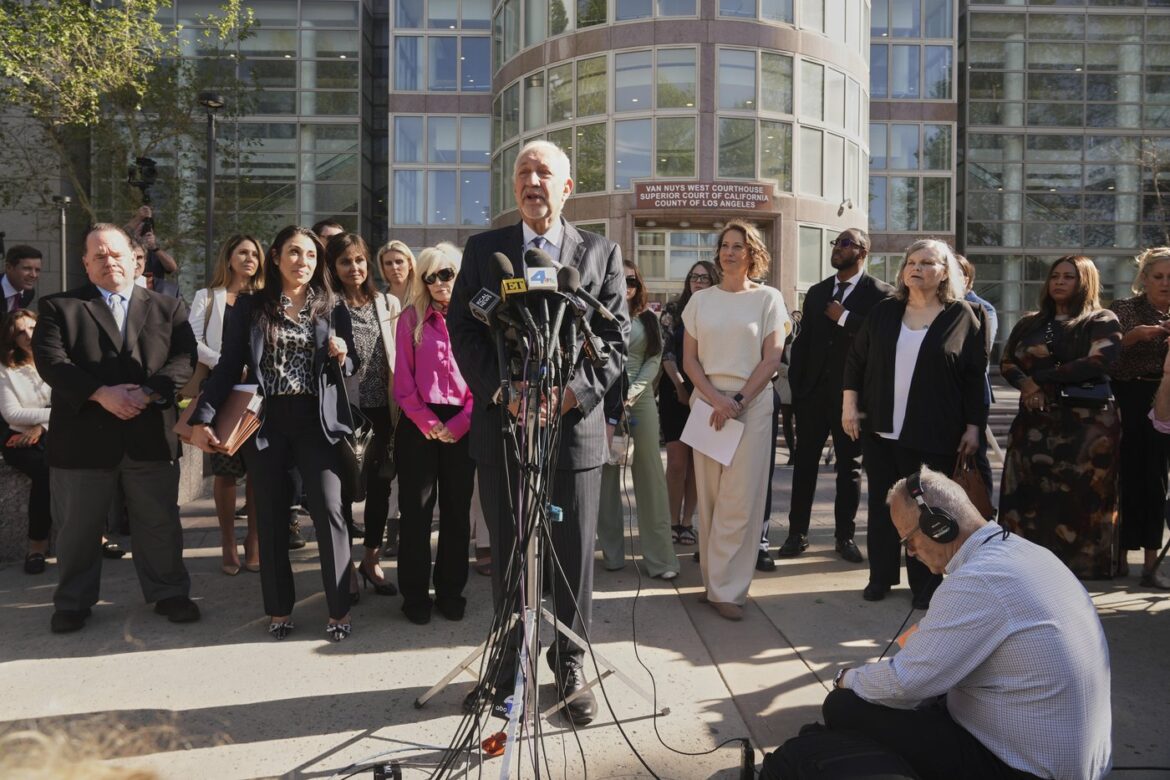A California judge has postponed a decision on whether Erik and Lyle Menendez, convicted over 30 years ago for the murder of their parents, will receive reduced sentences. The hearing, initially scheduled for April 2025, was delayed due to ongoing legal disputes and the need to review key risk assessment reports. This development marks the latest chapter in a high-profile case that pits arguments about the brothers’ rehabilitation and claims of past abuse against prosecutorial challenges and concerns about accountability.
The Menendez brothers, Erik and Lyle, have been at the center of a highly publicized case that dates back to their 1996 convictions for the 1989 murders of their parents, José and Kitty Menendez. Since their sentencing, the brothers have consistently maintained that they acted in response to prolonged abuse suffered during their upbringing. Their defense has repeatedly emphasized psychological trauma as a mitigating factor, advocating for reduced sentences on grounds of rehabilitation and diminished culpability.
Despite these appeals, prosecutors have objected to any sentence reductions, arguing that the brutality of the crime and the need for justice and deterrence outweigh considerations of rehabilitation. The legal dispute has been further complicated by debates over parole suitability and risk assessments, which are critical in determining whether the brothers pose a continuing threat to society.
Reasons for Delay
The postponement to April 2025 allows additional time for the court to thoroughly review recent risk assessment reports prepared by experts evaluating the brothers’ behavior, mental health status, and potential for reoffending. These reports are crucial in informing the judge’s eventual decision on resentencing, ensuring that it aligns with public safety concerns and legal standards.
Moreover, ongoing legal motions filed by both the defense and prosecution have contributed to the delay. These motions include requests for new evidence consideration and challenges to procedural aspects of the resentencing process. As the case involves complex issues of criminal justice and psychological evaluation, the court has taken a cautious approach to ensure fairness and due process.
Implications of the Case
This latest chapter underscores broader debates within the criminal justice system surrounding how past abuse and rehabilitation efforts are weighed against the gravity of violent crimes. The Menendez brothers’ case has long been a subject of public interest, raising questions about sentencing fairness, the impact of trauma on criminal behavior, and the potential for redemption.
The decision on resentencing, once finalized, may have significant implications for parole policies and the treatment of inmates who claim mitigating circumstances linked to their backgrounds. Legal analysts will closely monitor the outcome, as it could set precedent for future cases involving lengthy imprisonments with contested mitigating factors.
Next Steps
- The court will conduct further hearings as necessary to resolve outstanding legal issues.
- Updated risk assessments and expert testimonies will be submitted and reviewed.
- The judge’s resentencing decision is expected to be announced after the April 2025 deadline, barring unforeseen complications.
In the meantime, both the defense team and prosecution continue to prepare their respective arguments, signaling that the legal battle surrounding the Menendez brothers remains active and closely watched.
The postponement of the resentencing decision in the Menendez brothers’ case reflects the complexity of balancing justice, rehabilitation, and public safety in high-profile criminal cases. As the court takes additional time to review expert assessments and legal arguments, the outcome will be significant not only for Erik and Lyle Menendez but also for broader criminal justice practices concerning mitigating factors like past abuse. Stakeholders and observers alike await the judge’s decision, anticipated after April 2025, which may influence future approaches to parole and sentencing in cases involving claims of trauma and rehabilitation.

